The UEFA Champions League (UCL) is an annual club football competition organized by UEFA, involving top-division European clubs. It features a round-robin league phase followed by double-legged knockout rounds, culminating in a single-leg final. As the most-watched club competition globally, only the FIFA World Cup and the UEFA European Championship have more viewers. Highly prestigious, it is the premier club tournament in European football, featuring national league champions.
1966: Real Madrid Receives Original Trophy
In 1966, Real Madrid was given the original Champions League trophy in recognition of their six titles to date.
1967: Introduction of the European Champion Clubs' Cup
In 1967, the current version of the European Champion Clubs' Cup started being awarded to the winning team each year.
1968: Permanent Trophy Awarded
From the 1968–69 season and prior to the 2008–09 season any team that won the Champions League three years in a row or five times overall was awarded the official trophy permanently.
1991: UEFA brands the Champions League
In 1991, UEFA, with the help of TEAM, branded the Champions League with an anthem, black and white or silver "house colours", a logo, and the "starball" created by Design Bridge.
1992: Creation of the Champions League Sponsorship Model
In 1992, when the Champions League was created, it was decided that a maximum of eight companies should be allowed to sponsor the event, with each corporation being allocated advertising boards, logo placement, and tickets to each match.
1996: Rangers wear Center Parcs logo
In the 1996–97 Champions League, when Rangers played French side Auxerre, they wore the logo of the holiday chain Center Parcs instead of their primary sponsor, McEwan's Lager, due to alcohol advertising restrictions in France.
1999: Champions League Qualification
From 1999 to 2008, no differentiation was made between champions and non-champions in Champions League qualification.
1999: Starball logo recognition rate
In 1999, research conducted by TEAM concluded that the 'starball' logo had achieved a recognition rate of 94 percent among fans.
2005: Liverpool and Artmedia Bratislava reach Champions League group stage
In 2005, Liverpool and Artmedia Bratislava became the first teams to reach the Champions League group stage after playing in all three qualifying rounds.
2005: Special dispensation for Liverpool
In 2005, UEFA gave special dispensation for Liverpool to enter the Champions League after they won the Champions League the year before but did not finish in a Champions League qualification place in the Premier League that season, giving England five qualifiers.
2007: Michel Platini proposes changes to Champions League qualification
In 2007, Michel Platini proposed taking one place from the three leagues with four entrants and allocating it to that nation's cup winners, but this proposal was rejected.
2008: End of Undifferentiated Qualification
In 2008, the system where no differentiation was made between champions and non-champions in Champions League qualification ended.
2008: UEFA Retains Official Trophy
Since 2008, the official Champions League trophy has remained with UEFA, and the winning clubs are awarded a replica instead of the original.
2011: Tottenham Finished Fourth in Premier League
In the 2011-12 Premier League season, Tottenham Hotspur finished fourth.
May 2012: Tottenham fails to qualify for Champions League after Chelsea win
In May 2012, Tottenham Hotspur finished fourth in the 2011–12 Premier League but failed to qualify for the 2012–13 Champions League after Chelsea won the 2012 final, leading to Tottenham's demotion to the 2012–13 UEFA Europa League.
2012: Medals presented to winners and runners-up
As of the 2012–13 season, 40 gold medals are presented to the Champions League winners, and 40 silver medals to the runners-up.
2012: Introduction of LED advertising hoardings
From the 2012–13 knockout phase, UEFA used LED advertising hoardings installed in knockout participant stadiums, including the final.
2012: Arsène Wenger coins "4th Place Trophy" phrase
In 2012, Arsène Wenger referred to qualifying for the Champions League by finishing in the top four places in the Premier League as the "4th Place Trophy".
2012: Highest TV ratings to date
The final of the 2012–13 tournament had the competition's highest TV ratings to date, drawing approximately 360 million television viewers.
May 2013: UEFA Europa League winners to qualify for UEFA Champions League
In May 2013, it was decided that starting from the 2015–16 season, the winners of the previous season's UEFA Europa League would qualify for the UEFA Champions League.
2015: UEFA Used LED advertising hoardings
From the 2015–16 season onwards, UEFA has used LED advertising hoardings from the play-off round until the final.
2015: Europa League Winners Qualify for Champions League
Starting from the 2015–16 season, the winners of the previous season's UEFA Europa League qualified for the UEFA Champions League.
2015: Limit on Champions League Entrants
Until 2015–16, no association could have more than four entrants in the Champions League.
August 2016: Announcement of reforming plan for 2018–21 cycle
In August 2016, the reforming plan for the 2018–21 cycle was announced, confirming that the top four teams in the top four leagues would receive automatic qualification for the group stage.
2017: UEFA Champions League Qualification Extended
The rule for the winners of the previous season's UEFA Europa League to qualify for the UEFA Champions League, extended to the 2017–18 season.
2018: Top Four Teams Automatic Qualification
In 2018, the top four teams in the top four leagues would receive automatic qualification for the group stage.
2018: Europa League Winner Automatic Qualification
Starting from the 2018–19 season, the Europa League winner would receive automatic qualification for the Champions League group stage.
2019: UEFA Champions League Revenue
For the 2019–20 season, Paris Saint-Germain, the runners-up, earned nearly €126.8 million in total, of which €101.3 million was prize money, compared with the €125.46 million earned by Bayern Munich, who won the tournament and were awarded €112.96 million in prize money.
2019: Champions League Suspended due to COVID-19
In the 2019–20 season, the Champions League was suspended for five months due to the COVID-19 pandemic.
August 2020: Champions League Final in Lisbon
In August 2020, the final of the 2019–20 Champions League season took place in Lisbon, Portugal, after the tournament was suspended due to the COVID-19 pandemic. The quarter-finals and semi-finals were played as single match knockout ties at neutral venues.
2021: UEFA uses Virtual Board Replacement Technology
Since 2021, UEFA has used Virtual Board Replacement (VBR) technology to offer region-based advertising.
2021: Introduction of UEFA Champions League Player of the Season award
Starting from the 2021–22 edition, UEFA introduced the UEFA Champions League Player of the Season award.
2024: Group stage format
Prior to the 2024–25 season, there was a group stage of 32 teams, divided into eight groups of four.
2024: Extra Champions League Spot
Starting from the 2024–25 season, the two associations with the highest coefficients from the previous season would receive an extra Champions League spot.
2024: UEFA changes format of club competitions
Starting with the 2024–25 season, UEFA changed the format of their three club competitions, abandoning the group stage in favour of an expanded league phase. The number of participating teams was increased from 32 to 36 teams.
2024: Prize money distribution changes
Starting with the 2024–25 season, the distribution of the prize money is as follows.
Mentioned in this timeline
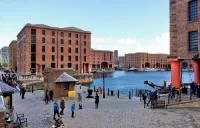
Liverpool is a port city and metropolitan borough located in...
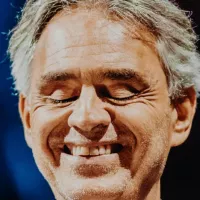
Andrea Bocelli is a renowned Italian tenor who rose to...

Football is a family of team sports primarily involving kicking...

Barcelona is a major city located on the northeastern coast...
France officially the French Republic is primarily located in Western...
Portugal officially the Portuguese Republic occupies the Iberian Peninsula in...
Trending
19 minutes ago Pokemon Celebrates 30 Years: A Cultural Phenomenon with Multimillion-Dollar Cards

20 minutes ago Daylight Saving Time 2026: Prepare to set your clocks forward and lose sleep.
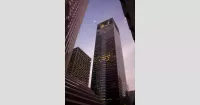
20 minutes ago Indiana Investigates CenterPoint Energy Amid Bill Concerns and New Utility Law.
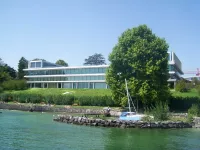
20 minutes ago Galatasaray's Champions League opponent revealed; Liverpool legend comments on Juventus match; Real Madrid faces Man City.

2 hours ago Google Maps to fully function in South Korea after data agreement.
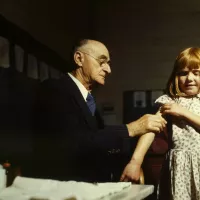
3 hours ago CDC Panel to Discuss COVID-19 Vaccine Injuries Following RFK Jr.'s Meeting
Popular

Jesse Jackson is an American civil rights activist politician and...

Barack Obama the th U S President - was the...

Susan Rice is an American diplomat and public official prominent...

XXXTentacion born Jahseh Dwayne Ricardo Onfroy was a controversial yet...

Michael Joseph Jackson the King of Pop was a highly...

Kashyap Pramod Patel is an American lawyer who became the...